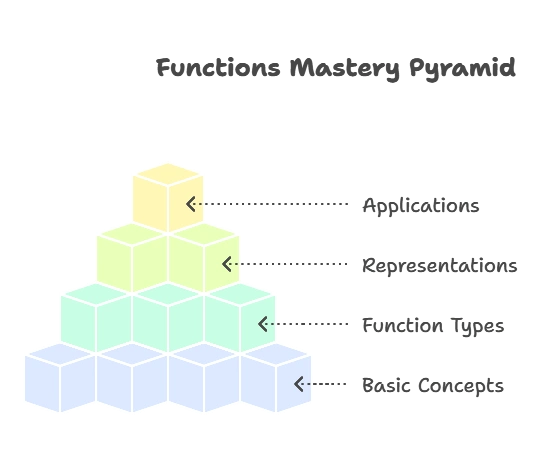Functions in Python
Functions are reusable blocks of code that perform specific tasks. They help in organizing code, improving readability, and reducing redundancy. In Python, functions are defined using the def keyword. In this topic, we'll cover everything you need to know about functions, from basic syntax to advanced techniques.
Basics of Functions

What are Functions?
Functions are named blocks of code that can be called to perform a specific task. They take input, perform some operations, and optionally return a result.
Basic Syntax
The basic syntax of a function in Python is as follows:
def function_name(parameters):
# Code block to execute
return result
Example
# Example of a basic function
def greet():
print("Hello, world!")
# Calling the function
greet()
Parameters and Arguments
Parameters
Parameters are placeholders in a function definition that receive input values when the function is called.
Arguments
Arguments are the actual values passed to a function when it is called.
Example
# Example of a function with parameters
def greet(name):
print("Hello, " + name + "!")
# Calling the function with an argument
greet("Alice")
Return Statement
Return Statement
The return statement is used to return a value from a function. It terminates the function’s execution and passes the result back to the caller.
Example
# Example of a function with a return statement
def add(a, b):
return a + b
# Calling the function and storing the result
result = add(3, 5)
print("Sum:", result)
Default Arguments and Keyword Arguments
Default Arguments
Default arguments are parameters that have default values specified in the function definition.
Keyword Arguments
Keyword arguments are passed to a function using the parameter names, allowing flexibility in the order of arguments.
Example
# Example of functions with default and keyword arguments
def greet(name="world"):
print("Hello, " + name + "!")
# Calling the function with default argument
greet()
# Calling the function with keyword argument
greet(name="Alice")
Advanced Techniques
Variable-Length Arguments
Functions can accept a variable number of arguments using *args and **kwargs syntax.
Lambda Functions
Lambda functions are small, anonymous functions defined using the lambda keyword.
Decorators
Decorators are functions that modify the behavior of other functions.
Example
# Example of a lambda function
add = lambda a, b: a + b
result = add(3, 5)
print("Sum:", result)
Functions are essential components of Python programming, allowing you to modularize code and improve code reusability. By understanding the basic syntax of functions, including parameters, return statements, default and keyword arguments, as well as advanced techniques like variable-length arguments, lambda functions, and decorators, you can write more efficient and organized code. Remember to choose appropriate function designs based on the specific requirements of your program and practice implementing and using functions in various contexts to enhance your programming skills. Happy Coding!❤️
